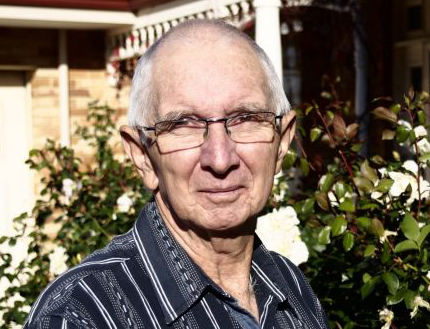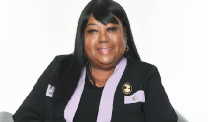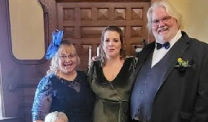Miracle Man: Legacy of Mesothelioma Survivor Barry Knowles
Stories From SurvivorsWritten by Lorraine Kember | Edited By Walter Pacheco

Barry Knowles, an Australian man diagnosed with mesothelioma, made cancer headlines in 2015 because of his amazingly long survival — six years — without much treatment.
After 18 weeks of unsuccessful chemotherapy to treat the stage IV asbestos-related cancer, his doctors handed him a grim prognosis: He had six to nine months before he succumbed to the incurable cancer.
Instead of letting the countdown begin and giving up on life, Knowles spent the next six years self-publishing a book about his inspirational cancer journey, donating blood for mesothelioma research and raising funds for clinical trials.
His journey ended Dec. 23. Knowles, known in the cancer community as “Miracle Man,” was 72.
Knowles’ legacy now serves as a reminder to countless other mesothelioma survivors, their loved ones and caregivers about his strength and perseverance in the face of an aggressive cancer.
Mesothelioma survivor Barry Knowles shares his experience.
Knowles’ Early Life & Exposure to Asbestos
His family left England and moved to Perth in Western Australia in 1952.
At the age of 14, Knowles joined the ranks of carpenters and joiners in the Western Australian building industry. He remained in the building industry until he retired in 2007.
Because the use of asbestos building products in Australia was rampant during the time of his employment, it’s likely that Knowles was exposed to asbestos on a daily basis.
In fact, according to the foreword of his book, “Reflections Through Reality,” a friend and former builder recalled how they once joked about it being a “wonder” they hadn’t developed an asbestos-related disease.
His Mesothelioma Diagnosis & Failed Cancer Treatment
In early 2010, Knowles fell from a tree, and a doctor took an X-ray to make sure everything was fine.
But everything was far from OK.
The X-ray showed several cracked ribs and an ominous shadow on his left lung. Although he didn’t show any mesothelioma cancer symptoms, Knowles said he knew in his heart what that shadow represented.
By now, the dangers of asbestos and mesothelioma were well known. Like others who worked for many years in the building industry, he had walked on eggshells just waiting for the day when someone would tell him he had the asbestos-related disease.
At the time of his diagnosis, doctors told him and his wife, Renee, that he had six to nine months to live. A typical mesothelioma prognosis is two years after diagnosis.
“Turning to Renee, I could see the horror on her face, and I could do nothing to comfort her. We had just been told that our time together, now spanning forty-seven years, was going to end in six to nine months,” Knowles wrote in his book. “The emotions started to reveal themselves as tears welled in my eyes and trickled down my face. Although the diagnosis was what I had expected, the reality of it being confirmed was unimaginable.”
When 18 weeks of chemotherapy treatment failed to improve his condition, he was told there was nothing more doctors could do for his stage IV cancer.
What happened next is astounding.
Without medical intervention, Knowles’ tumor progression slowed, and doctors updated his prognosis to 12 months. He extended it a full six years beyond his original life expectancy for mesothelioma.
Knowles Contributed to Mesothelioma Research & Support
In 2015, Knowles self-published “Reflections Through Reality.”
The book tells the story of his experience with the disease, reflections on his life’s journey, how he coped with the reality of his situation and the strength he drew from his relationships with family and his faith.
Knowles attributed the newfound extension on life to his immune system warding off the disease and preventing its spread. He donated blood so researchers can try to unlock the secret of his immune system and why he survived mesothelioma so long without medical intervention.
He and his family established the Reflections Through Reality Foundation to support the National Centre for Asbestos Related Diseases (NCARD) in Perth, as well as raise funds for the Harry Perkins Institute of Medical Research.
The foundation lets people and organizations donate directly to medical research, and it’s overseen by some of the world’s leading experts in mesothelioma research at the University of Western Australia.
In September 2016, Knowles celebrated his 72nd birthday and attended a function where he handed NCARD Director Bruce Robinson a check for $50,000 from funds collected by his foundation.
Robinson said the funding would go toward hiring a research fellow to undertake clinical trials that would study how to “wake up” a person’s immune system to attack and shrink tumors.
Celebrating Knowles’ Legacy
As this courageous son, brother, husband, father and friend to so many grieving people was laid to rest, it reminded me of my own husband Brian’s battle with the disease.
It also made the emotional wound I carry begin to ache.
My heart goes out to Knowles’ loved ones and friends. I know their pain.
I hope they find comfort in the knowledge that the death of their loved one will not diminish the miracle of his long survival or his selfless quest to benefit others.
The hope he has brought to people affected with mesothelioma in Australia and around the world is everlasting.






